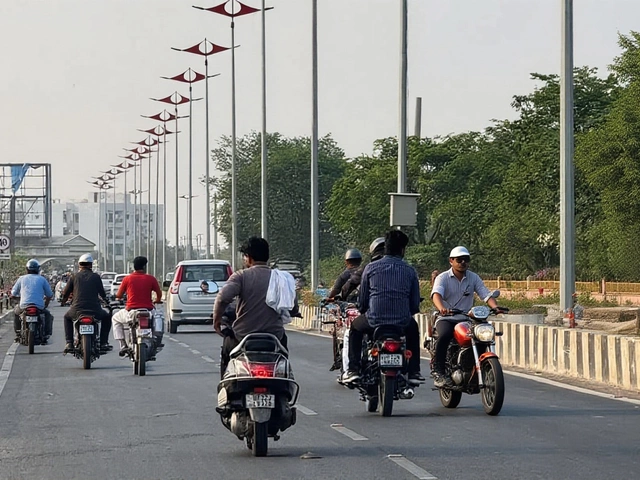Understanding Your Legal Rights After a Hit and Run Accident
If you've been involved in a hit and run accident, you may be feeling confused and overwhelmed by the situation. It's important to understand your legal rights so you can take the necessary steps to protect yourself.First, it's important to understand that a hit and run is a crime. Depending on the severity of the accident and the damage inflicted, it can be a felony or a misdemeanor. This means that the person responsible for the accident could face jail time if found guilty. As a victim of a hit and run, you have the right to seek justice.
Another important legal right you have is the ability to file a civil lawsuit against the person responsible for the accident. This could be done in addition to any criminal charges that may be filed. In a civil lawsuit, you can seek compensation for your medical expenses, lost wages, property damage, and pain and suffering. You may also be entitled to punitive damages, which are meant to punish the person responsible for the accident.
In addition, you have the right to pursue a personal injury claim against the driver. This is not the same as a civil lawsuit and is typically handled through an insurance company. You can seek compensation for medical bills, lost wages, and other damages.
Finally, you have the right to seek the recovery of any uninsured or underinsured damages. This means that if the person responsible for the accident does not have enough insurance to cover your damages, you can seek compensation through your own insurance company.
It's important to understand your legal rights after a hit and run accident. By understanding your rights and taking the necessary steps to protect yourself, you can ensure that you are properly compensated for your injuries and damages.
How to Gather Evidence to Help Prove a Hit and Run Case
If you’ve been injured in a hit and run accident, the first thing you should do is call the police. Even if you don’t think you’ll have much of a chance of tracking down the driver, it’s still important to get the police involved as soon as possible.Once the police have been called, it’s important to start gathering evidence that can help you prove that a hit and run occurred. Here are some tips for gathering evidence:
1. Take photos of the scene of the accident. This can help your case if the other driver disputes that a hit and run occurred.
2. Write down the license plate of the vehicle that hit you, if you can remember it.
3. Talk to any witnesses who may have seen the accident. Ask them to provide a statement about what they saw.
4. Make sure to get medical attention right away and keep all of your medical records.
5. Keep any receipts or bills related to the accident, including car repairs and medical bills.
By gathering evidence to help prove your case, you can increase your chances of receiving the compensation you deserve after being injured in a hit and run.
Tips for Dealing With Insurance Companies After a Hit and Run
Dealing with insurance companies after a hit and run can be a stressful and confusing process. Depending on the severity of the incident, you may have to deal with both your own insurance company and the other driver's insurance company. Here are a few tips to help you navigate the process:1. Document everything. Try to document all of your interactions with the insurance companies, including any phone calls or emails. This will help you keep track of the process and make sure that all of your questions and concerns are addressed.
2. Get an attorney. You may want to consider hiring an attorney to help you navigate the process. An attorney can review any paperwork from the insurance companies and make sure that your rights are being protected.
3. Don't sign anything without reading it. Insurance companies may offer you a settlement, but make sure you read and understand the details before signing anything. You don't want to sign away your rights without understanding what you're agreeing to.
4. Consider all of your options. You may be able to file a civil lawsuit against the other driver if they are found. Even if they can't be found, you may be able to file a claim with your own insurance company. Talk to your attorney to make sure you understand all of your options.
5. Be patient. The process of dealing with insurance companies after a hit and run can be long and tedious. Be prepared to be patient and remain in contact with the insurance company throughout the process.
By following these tips, you can make sure that your rights are protected and that you are fairly compensated for your injuries. Good luck!
How to Recover Physically and Emotionally After a Hit and Run
If you have been injured in a hit and run accident, you may be feeling a range of emotions, from shock to anger to sadness. In addition to the emotional trauma, you may be dealing with physical injuries that require medical attention. In this blog section, we’ll discuss some tips for recovering both physically and emotionally after a hit and run.Physically Recovering After a Hit and Run
If you were seriously injured in a hit and run, you may need to seek medical attention. It’s important to get checked out by a doctor to make sure that your injuries are properly treated. You may also need to take time off work or school in order to recover.
In addition to seeking medical attention, there are a few other things you can do to help your body recover. For example, try to get plenty of rest and stay hydrated. You may also want to try relaxation techniques such as yoga or meditation to help your body and mind heal.
Emotionally Recovering After a Hit and Run
After a hit and run, you may be feeling a range of emotions, from shock to anger to sadness. It’s important to take time to process these emotions and to reach out for help if you need it.
Talking to a trusted friend or family member can be a helpful way to process your emotions. You may also want to consider seeking professional help from a therapist or counselor. A therapist can help you work through the emotional trauma of the accident and develop healthy coping strategies.
Finally, it’s important to remember that healing takes time. Don’t be too hard on yourself if you’re not feeling better right away. Give yourself time and space to process the emotions and heal.
What to Do When the Driver Responsible for a Hit and Run is Never Found
Hit and runs are a serious issue, and when you are the victim of one, it can be incredibly difficult to get the justice you deserve. Unfortunately, there are some cases in which the driver responsible for the hit and run is never found. This can be incredibly frustrating and even more disheartening than the initial event itself. If you are in this situation, here are a few things you can do.First and foremost, file a police report. Even if the driver responsible for the hit and run is not found, it is important to document the incident. This can help if you need to file a civil case or if there are any other legal proceedings.
Next, you should contact your insurance company. They can help you cover the costs of medical bills and any other damages that occurred during the hit and run. Even if you do not have collision coverage, you should still reach out to your insurance company so they are aware of the incident.
You should also consider filing a civil lawsuit. Even if the responsible driver is never found, you may be able to obtain compensation for your medical bills, pain and suffering, and any other damages that occurred. An experienced attorney can help you understand your rights and determine if a civil suit is the best course of action.
Finally, if you are feeling overwhelmed by the situation, consider seeking out counseling or therapy. A mental health professional can help you process your emotions and come to terms with the hit and run.
No matter what the outcome of the hit and run, it is important to remember that you are not alone. Seek out the help and support you need, and do not be afraid to ask for help.





